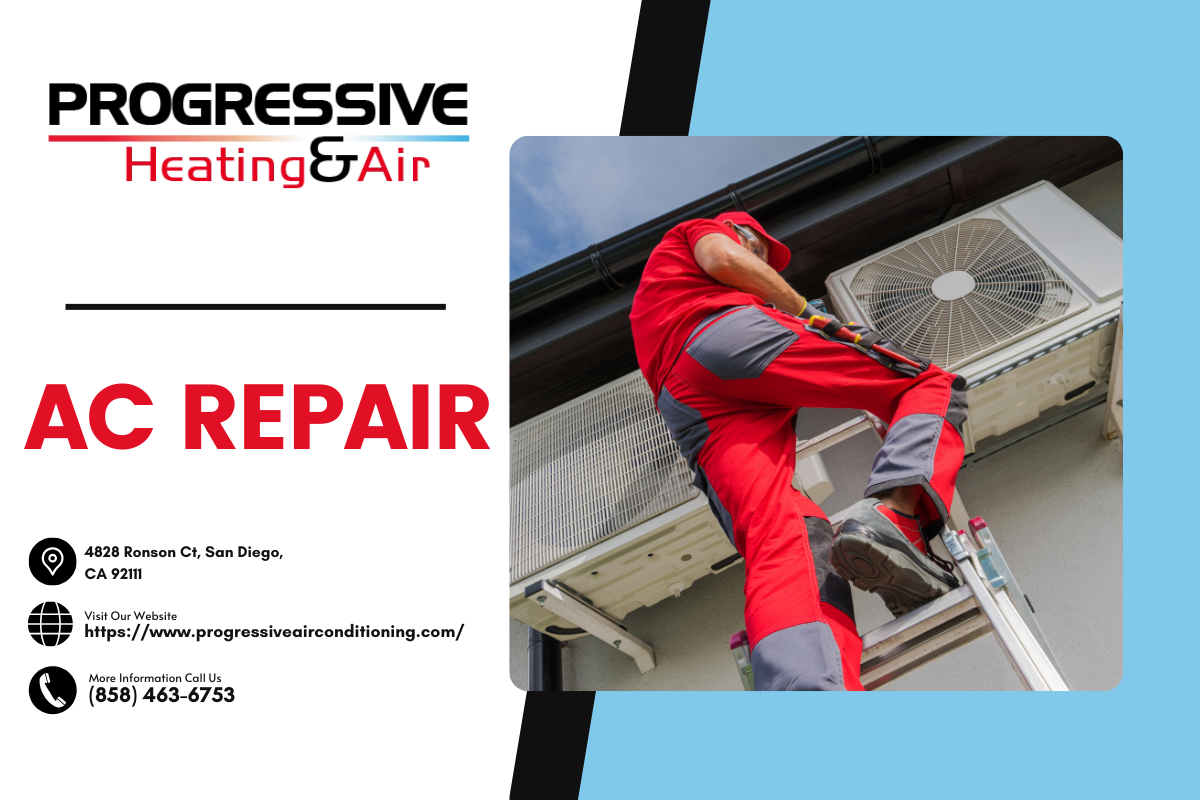

Introduction
Winter is coming, and with it comes the need for homeowners to prepare their heating systems for the cold months ahead. As temperatures plummet, ensuring your home remains a warm sanctuary is crucial. This article will guide you through essential steps recommended by your local HVAC company to prepare your system for winter. By following these tips, you can ensure that your home stays comfortable and energy-efficient.
In this comprehensive guide, we’ll explore various aspects of winter preparation, covering everything from routine maintenance to emergency tips. Our goal is to equip you with the knowledge needed to keep your heating system in optimal condition while saving money on energy bills. So let’s dive into the Winter Prep: Essential Steps from Your Local HVAC Company!
Understanding the Importance of Winter Prep
Why is Winter Preparation Necessary?
Preparing your HVAC system for winter isn’t just about comfort; it’s also about safety and efficiency. A well-maintained heating system can:
- Prevent Breakdowns: Regular checks can identify issues before they become major problems. Enhance Efficiency: Proper maintenance ensures that your system operates at peak performance, reducing energy consumption. Improve Air Quality: A clean and functioning HVAC system helps maintain good indoor air quality during winter months when windows are typically closed. Extend System Lifespan: Regular servicing can help prolong the life of your heating equipment.
Signs That Your HVAC System Needs Attention
Before diving into specific maintenance tasks, it’s essential to recognize signs that may indicate your HVAC system requires professional attention. Common warning signs include:
- Inconsistent heating throughout the home Unusual noises from the furnace or heat pump Higher than normal energy bills Frequent cycling on and off Dust accumulation around vents
If you notice any of these issues, it's time to reach out to a trusted HVAC contractor.
Winter Prep: Essential Steps from Your Local HVAC Company
1. Schedule a Professional Inspection
Hiring a licensed HVAC company for an annual inspection can save you headaches later on. During this visit, professionals will:
Inspect all components of your heating system Check for any signs of wear or damage Clean parts such as filters, coils, and ducts Test thermostat calibration Ensure safety mechanisms are functioning properlyScheduling this inspection well before the first frost gives you peace of mind as winter approaches.
2. Change Your Air Filters Regularly
Air filters play a crucial role in maintaining indoor air quality and keeping your HVAC system running efficiently. Clogged filters can restrict airflow and force your unit to work harder, leading to higher energy bills and potential breakdowns.
How Often Should You Change Filters?
- Monthly: For homes with pets or allergies. Every 3 months: For typical households without special concerns.
Make sure to choose high-quality filters compatible with your system.
3. Insulate Ductwork
Proper insulation of ductwork can significantly improve efficiency by preventing heat loss as air travels through ducts from the furnace to different areas in your home.
Benefits of Insulating Ducts:
- Reduces energy costs Improves temperature consistency Decreases dust circulation
Consider hiring a licensed HVAC company near you if you're not comfortable doing it yourself.
4. Seal Windows and Doors
Drafty windows and doors can undermine even the most efficient heating systems by allowing warm air to escape while letting cold air enter.
Tips for Sealing Windows and Doors:
- Use weather stripping or caulk around frames. Install storm windows for added insulation.
By sealing gaps, you'll not only enhance comfort but also lower heating costs.
5. Program Your Thermostat
A programmable thermostat allows you to set specific temperatures based on your schedule—lowering heat when you're away or sleeping and warming up when you're home.
Advantages of Smart Thermostats:
- Remote access via smartphone apps Learning algorithms adjust settings automatically Energy usage reports provide insights for savings
Investing in a smart thermostat could yield significant savings on energy bills over time!
6. Prepare Your Heating System
Before winter hits hard, do some preparatory work on your existing heating infrastructure:
Remove any obstructions around vents (furniture or drapes). Ensure that radiators are bled if necessary—this removes trapped air that hinders efficiency. Check pilot lights or ignition systems on gas units.Taking these steps will enhance performance when you need it most!
Emergency Preparedness Tips
7. Have an Emergency Plan
Sometimes despite all precautions, emergencies occur—a sudden breakdown during a snowstorm can leave you in an uncomfortable situation.
Create an Emergency Checklist:
Know who to contact—save numbers for trusted HVAC contractors. Keep extra blankets available. Stock up on non-perishable food items in case power goes out.Being prepared helps mitigate stress during unexpected situations!
8. Invest in Backup Heating Solutions
Consider having supplemental heaters like space heaters or wood stoves available should your primary heating source fail unexpectedly.
Safety Precautions When Using Backup Heaters:
Never leave them unattended. Ensure proper ventilation where applicable. Follow manufacturer guidelines carefully!Backup solutions provide peace of mind against potential failures during harsh conditions!
Energy Efficiency Tips
9. Utilize Ceiling Fans Wisely
Did you know ceiling fans can help circulate warm air? Running fans clockwise pushes warm air down toward living spaces instead of allowing it to rise toward ceilings where it’s less useful.
Tips for Fan Usage:
Set ceiling fans on low speed in winter mode (clockwise). Turn them off when leaving rooms unoccupied.This minor adjustment https://www.google.com/maps/place/Progressive+Heating+%26+Air/@32.8591244,-117.2069908,11z/data=!4m6!3m5!1s0x80d9553ed88a2949:0x3213da2b64fa6fab!8m2!3d32.8302111!4d-117.1462825!16s%2Fg%2F12hm71cpz?entry=ttu&g_ep=EgoyMDI1MDcyMS4wIKXMDSoASAFQAw%3D%3D can contribute positively towards energy-saving efforts!
10. Programmable Timers for Lights
Not strictly related to HVAC but still part of overall efficiency—consider using programmable timers for outdoor lights during dark winter evenings which contributes indirectly towards security measures at home as well!
Maintaining Indoor Air Quality
11: Ventilation Is Key
Good ventilation is crucial during winter when homes are sealed tightly against outside temperatures—stale air builds up quickly!
Best Practices Include:
1) Opening windows briefly each day (when conditions allow) 2) Using exhaust fans while cooking/bathing 3) Investing in whole-home ventilation systems if feasible
These practices help maintain fresh airflow indoors year-round!
FAQs About Winter Preparation
FAQ 1: How often should I have my furnace serviced?
Answer: It’s recommended to service your furnace once a year before the start of each heating season—this will ensure optimal performance throughout winter months!
FAQ 2: What should I look for when choosing an HVAC contractor?
Answer: Look for licensed contractors with positive reviews/testimonials; inquire about warranties offered as well! Trusted contractors often have certifications indicating their expertise within industry standards too!
FAQ 3: Can I perform maintenance tasks myself?
Answer: While some tasks like changing filters are straightforward enough homeowners may tackle themselves—but always consult professionals regarding more complex issues like electrical work/duct cleaning etc., especially if unsure about safety protocols involved!
FAQ 4: What is the average lifespan of an HVAC unit?
Answer: Most systems last between 15 – 25 years depending upon usage patterns & level upkeep performed regularly; older units tend towards decreased efficiency over time leading into costly repairs/replacements thereafter too!
FAQ 5: Is insulation necessary even if I have new windows installed?
Answer: Yes! Although new windows improve thermal performance significantly—they alone cannot offset heat loss occurring elsewhere within structures unless comprehensive insulation measures taken throughout entire building envelope!
FAQ 6: How do I know if my ducts need cleaning?
Answer: Signs may include excessive dust accumulation indoors—even after regular cleaning efforts—or noticeable musty odors emanating from vents—if so consider reaching out local hvac services providers specializing specifically duct-related issues promptly thereafter too!
Conclusion
As we approach another winter season filled with chilly nights and frosty mornings, taking proactive steps towards preparing our homes becomes paramount—not just comfort-wise but also economically speaking! By following these essential steps provided by local trusted hvac companies alongside obtaining necessary inspections regularly—we’ll ensure warmth remains consistent throughout harsh conditions ahead effectively too! Don’t hesitate; make those preparations today so that come snow flurries—you'll be cozy inside without worry!
Remember—the most effective way forward includes staying informed about how best maintain systems long-term ensuring reliability meets expectations ongoingly hereafter regardless what nature throws our way next! Take action now; contact nearby licensed hvac company ready assist every step along journey making sure everything runs smoothly ahead seamlessly ensuring pleasant experiences enjoyed all season long thereafter truly!